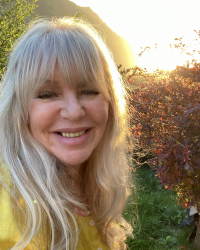'Do I need counselling?'
For many people, this will be a thought uppermost in their minds. 'Do I need counselling?' In this short article, I will look at some of the realities of what counselling actually is and what it is not. I will also talk a little about the reason I personally believe that we can all benefit from counselling at some point in our lives.
From birth onward, the most fundamental human need is the need to feel understood and valued in a completely unconditional sense. Yet, this is something that many people do not experience in the world. We may find being 'real' or really in touch with ourselves difficult, even with family or friends and may feel misunderstood or indeed, ignored, insofar that we have no one person who will listen with sensitivity and not make judgements about our story, and we all have a story to tell.
This emotional intimacy is, however, a fundamental human need. We can go without many things in life but, it has been shown that intimacy in the emotional sense is vital for our well-being. We can survive without feeling understood but, some part of us withers if we do not have one person whom we can trust and who can give us good counsel.
Life throws all sorts of things in our way and sometimes we cope and at other times we struggle and yet, often we may hold back - staying silent, feeling wounded, lost and desperate. There are numerous reasons why we may stay silent and do not want to reach out to others. We may fear rejection, or have few family members whom we are close to; perhaps are seen to be 'okay' by our friends and do not want to shatter the illusion. This is where professional counselling can be of enormous help.
Professional counsellors and psychotherapists know what it is like to be a client, as training involves counselling and psychotherapy. This is something that few clients are aware of and yet, I think it a pertinent issue. It is essential that counsellors know what the client experience is like and how trust develops - how it is to explore ones innermost thoughts and experiences with another in a professional setting.
Counsellors and psychotherapists also have confidential supervision, so work is monitored, and supervisors are supervised and so on. This continuum works to support those who engage in the work professionally, and also means that counsellors are continually learning which is vital for the counsellor and, of course, the client.
Counsellors offer clients a space to safely explore issues that life throws up, and this is something that we all experience in life. Counsellors will not judge you. The work of a counsellor is not to take control of your life, but to facilitate your ability to harness the strength you have within, to learn new ways of coping, and also to look at patterns of behavior that might not be working, with the effect that these can be tempered into more adaptive and nourishing approaches to life.
It depends on the orientation of the counsellor or psychotherapy, but all counsellors offer a non-judgmental, accepting and calm presence, which in itself, is supportive and nurturing. Talking really is good for us.
Now I will briefly look at some things that counselling is not. Counseling is not about advice giving. Your life is your life and you are the expert. Counselling allows you to develop greater autonomy to change your life, with the support and guidance you need and at a pace you find comfortable. Counsellors will not tell you what you should do, with the exception of CBT and behavioral approaches, where the therapist may encourage you to keep a diary of your thoughts and feelings including planned exercises, which can change maladaptive behavior patterns. This basically means a certain discarding of old ways in favor of new and more healthy behavior.
Generally speaking however, the counsellor is there to listen. To be a steady presence and to facilitate your growth as a person. So I return to the question 'Do I need counselling?'
I would say that everyone needs counselling, at some point in life. This may be just a few sessions to sort out a problem we are aware of or may mean more long-term work to look at our life and how we arrived where we are.
Counselling offers you, the client, a very precious thing indeed. The relationship between counsellor and client is a very special one. It is a relationship based on equality, trust and empathy.
Counsellors allow you to really be yourself in the knowledge that you are in a safe place, a place of empathic non-judgmental acceptance and ultimately, a place where you can become the best you, you can be.

Find a therapist dealing with Anxiety
All therapists are verified professionals






